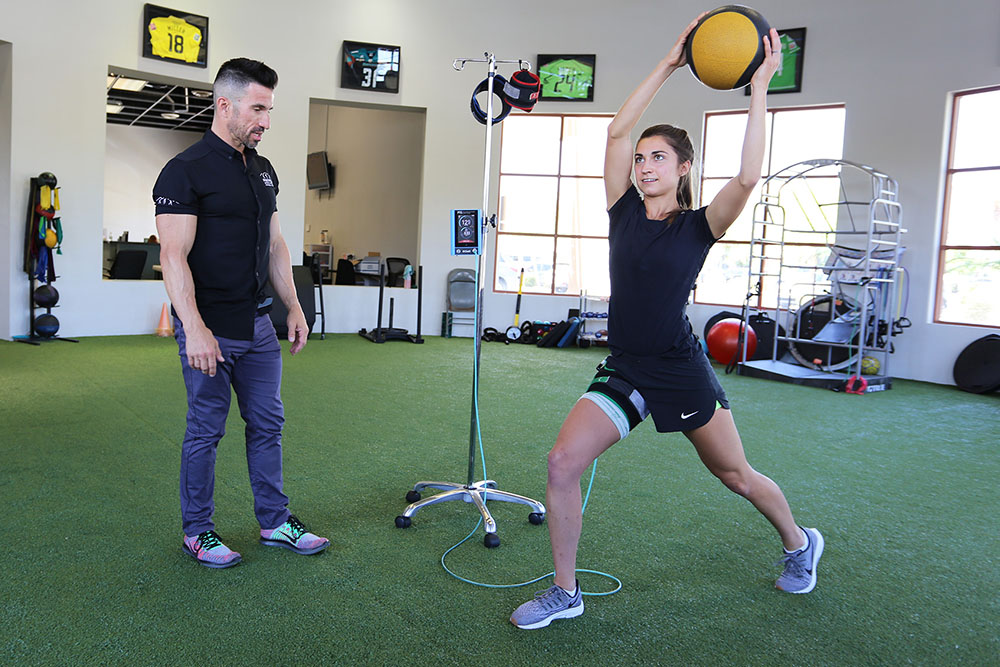We celebrate athletic trainers everyday here at Foothills, but each March it’s highlighted on a national level during National Athletic Training Month. We are behind this initiative fully, as it helps spread awareness about the important work athletic trainers. Athletic trainers are typically known for working closely with sports teams, but as you read our Q&A with Greg Keuter, MS, ATC, PES, you’ll see they do much more than that.
How long have you been an athletic trainer and what’s your background in athletic training?
Greg Keuter: I am in my 31st year as a Certified Athletic Trainer. I began my career in 1989 with the Chicago Cubs as a minor league athletic trainer. At that time, I was one of two “athletic trainers” in the Appalachian League. I put athletic trainer in quotes there because by today’s standards, those other individuals would not be allowed to use the title athletic trainer.
Why did you become an athletic trainer?
Greg Keuter: I have been a sports nut my entire life I can remember. As my talent began to no longer suffice to allow my continued participation, I began to look for ways to remain close and involved. As I finished my freshman year at the University of Nebraska, I was considering working toward a physical therapy degree when my mother told me about a presentation she had heard from George Sullivan, the Head Athletic Trainer at the University. As she talked, a light bulb went off and I realized athletic training was the career for me.
What role does an athletic trainer play for sports teams?
Greg Keuter: First and foremost, athletic trainers work hard to keep active individuals healthy and safe as they take part in an active lifestyle, be that in organized sports, simple play, or just being an active individual. When injuries and illnesses occur, the athletic trainer is often the first responder to assess the situation, provide immediate care, and then to guide the individual back to full participation in the safest way possible.
Where do you see the profession of athletic training going in the next 5 years?
Greg Keuter: I am passionate about this profession and I am encouraged by its growth and the increased level of exposure it is enjoying on a national level. I believe that when athletic trainers are seen more as health care providers, and less as personal trainers or equipment managers, the value we bring to health care will become more appreciated and respected. Along with that, the progression to a Masters degree as a minimum requirement for certification will further provide opportunities for the growth of the profession into areas not yet considered.
What advice would you give to someone who wants to pursue athletic training as a career?
Greg Keuter: As an athletic trainer, my patient’s well-being is my first priority. My goal is to provide thoughtful, compassionate health care, always respecting the rights, welfare and dignity of others. The athletic trainer does not require, and often does not receive recognition for the effort needed to do this and relies on the fulfillment of seeing those they care for achieve their goals for job satisfaction. It is sometimes difficult work but when all is said and done, I cannot think of a more rewarding career for me. If you are someone who is not allergic to work, does not need constant recognition, and desires to help others be their best, healthiest self, then you should look into becoming a certified athletic trainer. You will be glad you did.
If you’re interested in learning more about athletic training and how we integrate athletic training coverage, visit our website here.
March is National Athletic Training Month




